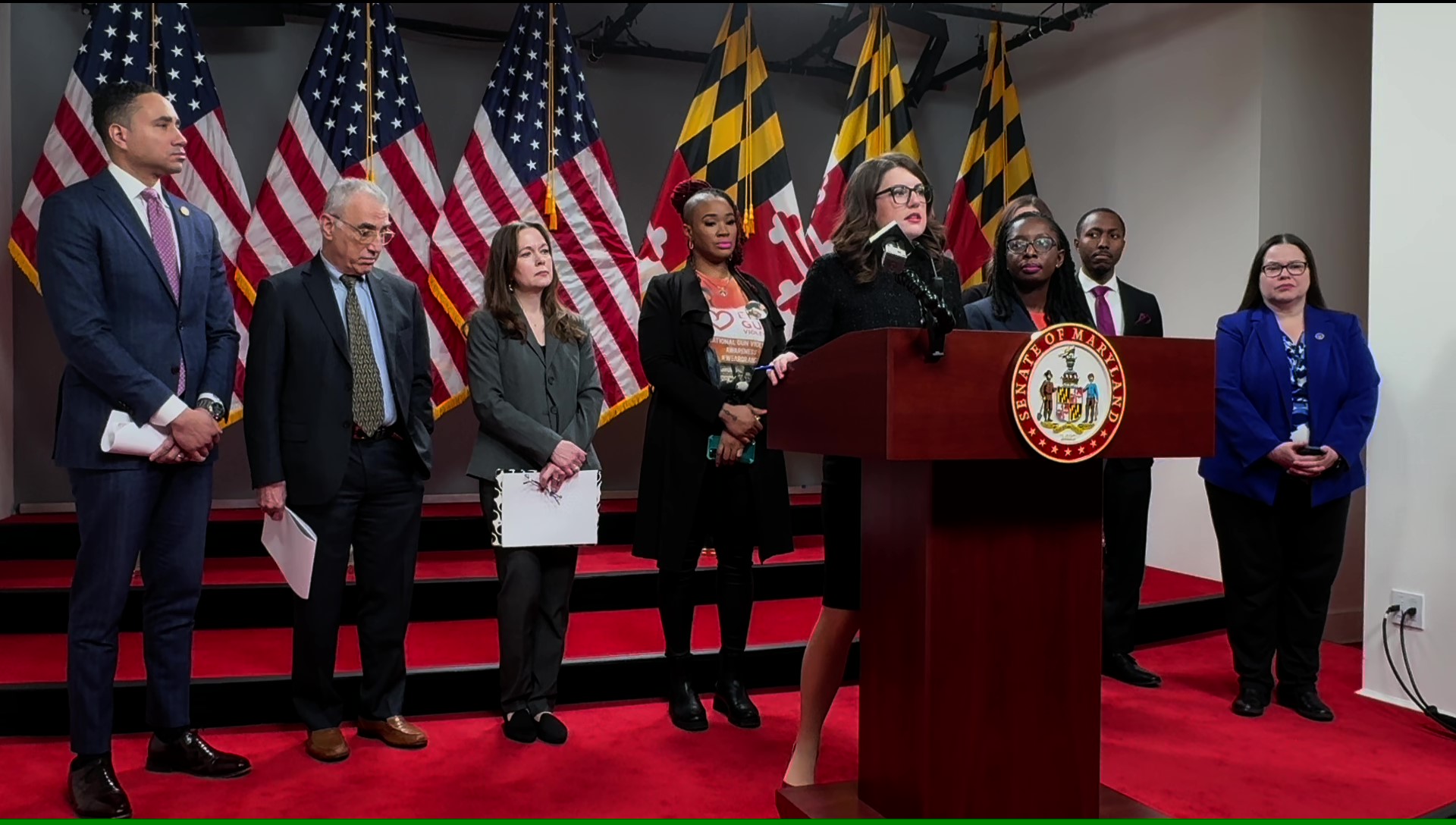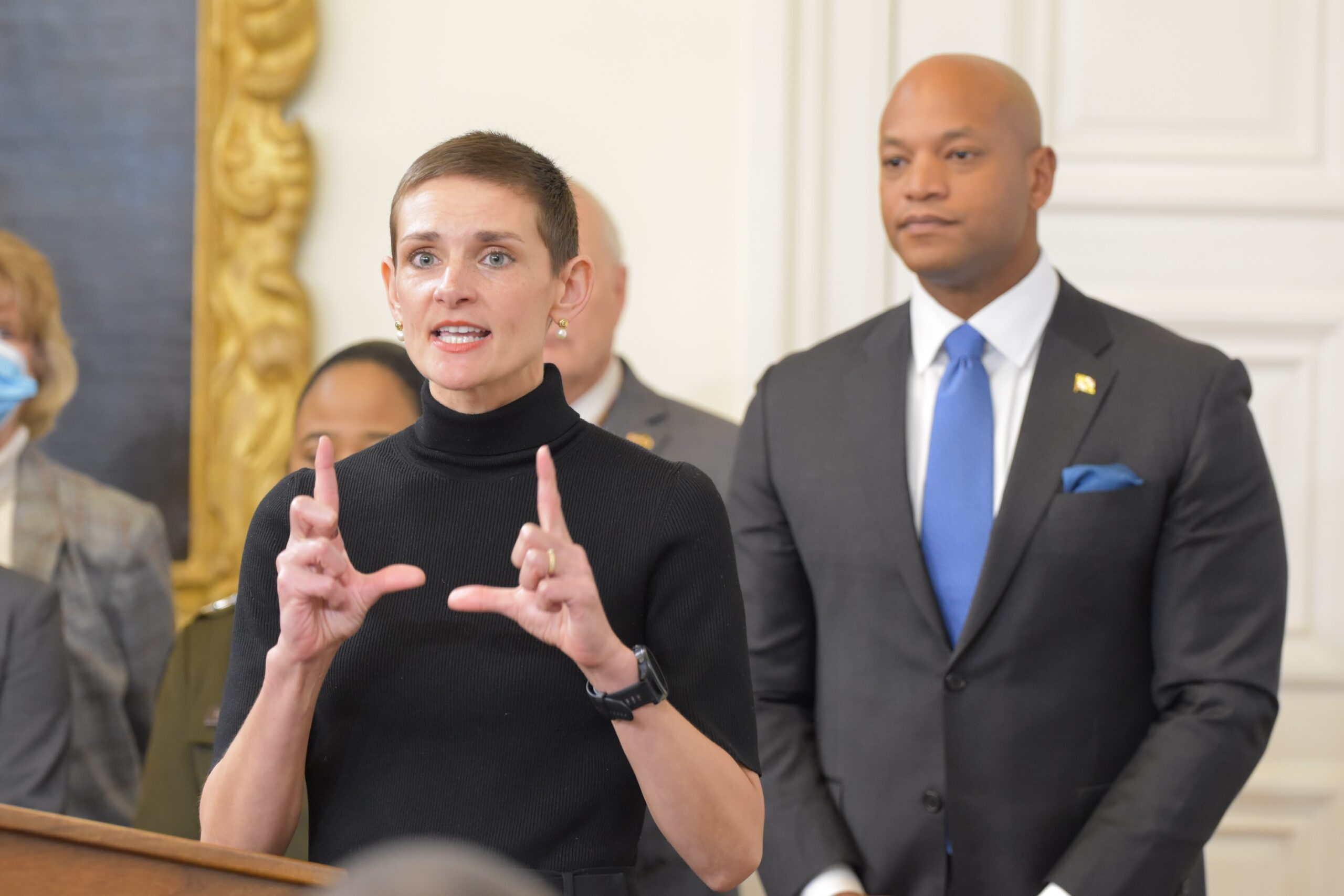Sen. Washington & Del. Jazz Lewis: Time to End the Sale of Flavored Tobacco in Maryland

The story of inequity and inequality is not a new one in our state’s history, and the COVID 19 pandemic has brought to the forefront several long standing issues that have historically plagued minority communities.
One such issue is the predatory and targeted efforts of the Big Tobacco industry to hook Black and Brown communities, particularly our youth, to flavored tobacco products. Worse still, we know tobacco use increases the risk of contracting COVID 19, making this product and our pandemic even more deadly for the communities Big Tobacco targets.
In an effort to protect our citizens from a toxic product that contributes to 7,500 deaths in Maryland each year as well as roughly $2.9 billion in related health care costs, we are sponsoring legislation that will end the sale of flavored tobacco products.
For decades, Big Tobacco has pursued explicitly racialized marketing strategies for menthol cigarettes, the most widespread flavored tobacco product. In fact, researchers drawing on hundreds of tobacco industry documents found that Big Tobacco utilized a pattern of “highly targeted menthol cigarette marketing” concentrated in communities “populated predominantly by low-income African American residents” since the 1960s.
Menthol is easier to smoke given its minty taste and cooling sensation. It’s a smart marketing strategy because Big Tobacco knows that nicotine stores itself in tissues that contain melanin, the substance that gives color to our skin. The darker your skin, the more nicotine is stored in your body, making it much easier to become addicted and much more difficult to quit.
Big Tobacco’s strategy has been effective. In 1952, only 5% of Black adult smokers used menthol. Today that number is 85%, and seven out of 10 Black youth smokers smoke menthol.
Black men now face the highest rates of mortality due to tobacco-linked conditions such as lung cancer and heart disease. And despite the federal government outlawing flavored cigarettes in 2009, menthol cigarettes were exempted, meaning they continue to be accessible at your local convenience store.
In the 21st century, Big Tobacco has also been innovating. We have seen the emergence of e-cigarettes, which are the most commonly used tobacco product among youth, surpassing conventional cigarettes in 2014. They are also strongly associated with the use of other tobacco products among youth and young adults, who become dual users of e-cigarettes and conventional tobacco products. This should come as no surprise since e-cigarettes come in over 15,000 flavors such as minty menthol, glazed donut, gummy bear, and cotton candy.
Clearly designed to hook kids to a life of addiction, these devices deliver massive doses of nicotine, which we know can harm the brain development in adolescents. In fact, just one Juul pod contains as much nicotine as a pack of cigarettes.
Currently, a staggering one in four Maryland high school students use e-cigarettes, a rate five times higher than adult use, and 80% of teens who have ever used tobacco started with a flavored product. Despite age restrictions, we know that kids are accessing these products easily.
In Baltimore alone, 87% of public schools are within 1,000 feet – about two city blocks – of a tobacco retailer selling these dangerous products. And if kids can’t get the product from their local store, they are getting them from older friends or family.
This reality allows Big Tobacco to use e-cigarettes as a new path to addiction for a new generation who might otherwise avoid cigarettes. Once addicted, the minty taste of menthol cigarettes creates a clear bridge between vaping and traditional tobacco use.
To add insult to injury, Big Tobacco defends e-cigarettes by saying they help smokers kick the habit. These dubious claims recall Big Tobacco ad campaigns of the past such as “More doctors smoke Camels,” or the roll out of a “safe” new cigarette filter, all of which successfully prolonged tobacco addiction into another generation. The truth is that e-cigarettes are not proven or approved by the CDC or FDA as a cessation product.
This year Faith and Community Against Flavored Tobacco, a coalition of over 50 faith communities, community groups, and advocacy organizations across Maryland are pushing back against Big Tobacco. Like them, we believe the solution is clear: Maryland must stand up to Big Tobacco by joining the five other states who are already beginning to end the sale of flavored tobacco products.
It is our job to protect Marylanders, especially our youth, from these toxic products that cause death and suffering in our communities. For these reasons, we will fight for the passage of legislation that ends the sale of flavored tobacco in Maryland.
— SEN. MARY WASHINGTON AND DEL. JAZZ LEWIS
Washington represents Baltimore City’s District 43 in the Maryland Senate, and Lewis represents Prince George’s County’s District 24 in the Maryland House of Delegates. The writers are both Democrats.




 Creative Commons Attribution
Creative Commons Attribution